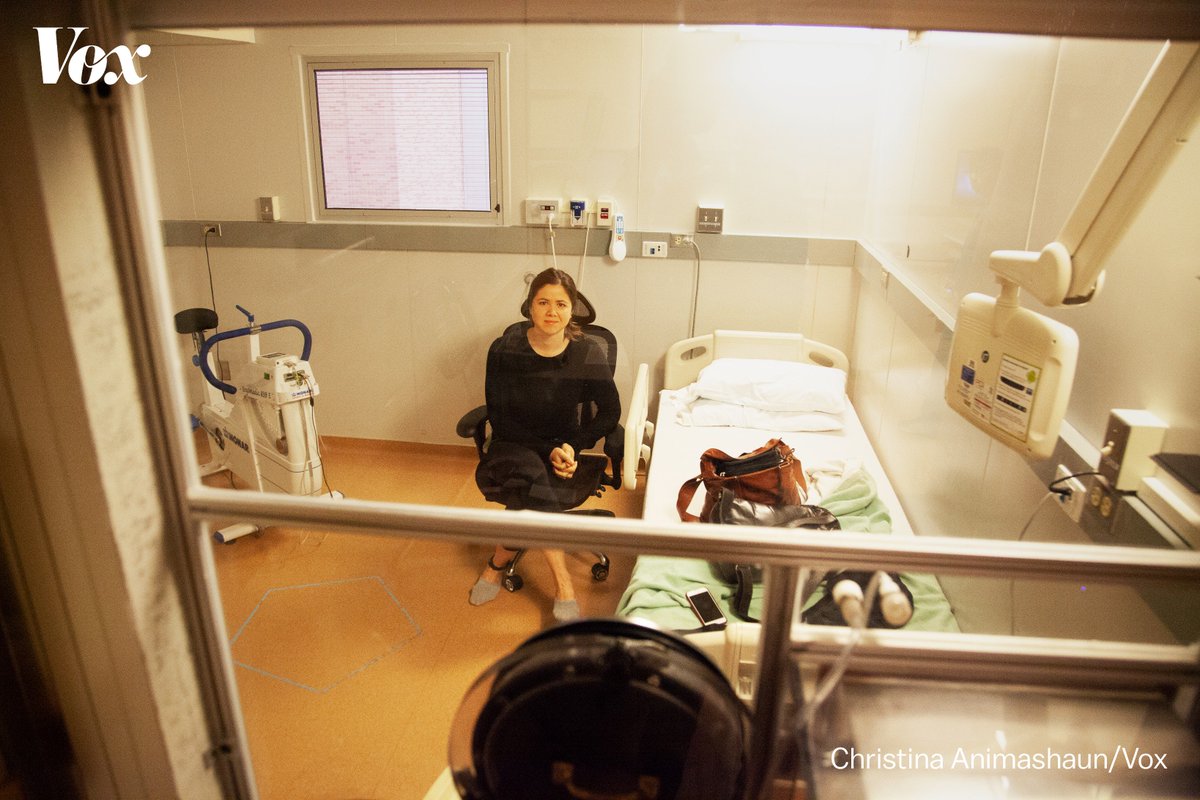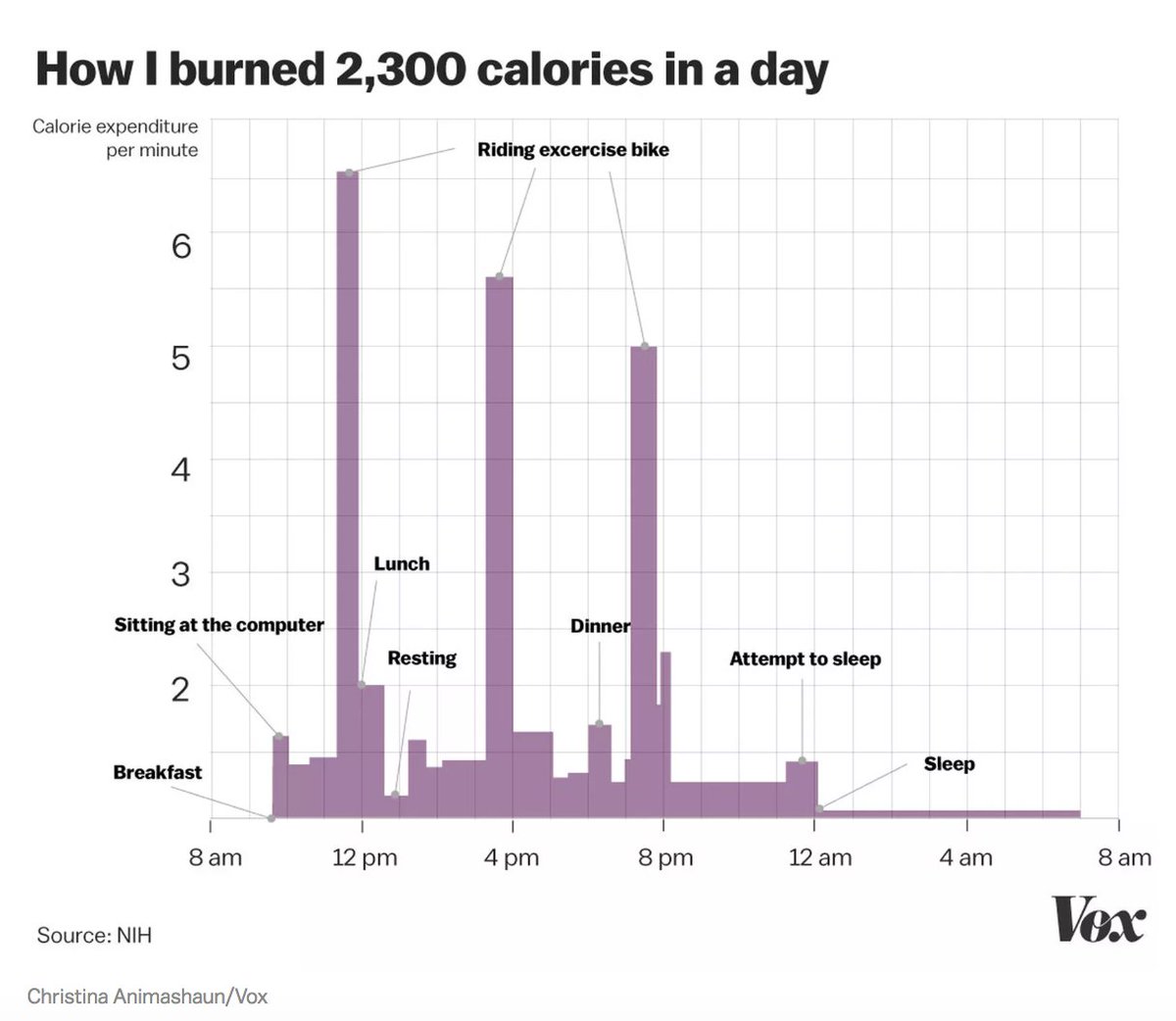TWEETORIAL AHEAD: This summer, I had a rare opportunity to join an @NIH study and spend 23 hours sealed inside an 11-by-11.5-foot metabolic chamber... and I got a granular look at how metabolism works. A few takeaways: 

1) *Metabolism is not a single thing in you that you can control.* It's thousands of chemical reactions that turn the energy (calories) we eat and drink into fuel in every cell. These reactions change in response to our environments & behaviors, in ways we have little control.
2) *Exercise accounts for a relatively minor portion of total energy burn* (17 percent in my case). And in an hour and a half on an exercise bike, I only burned 400 calories! A lot less than the 700-800 advertised in 45-minute spinning classes.
3) *Our metabolic rate stays elevated after workouts... but only for a few minutes* (and definitely not the 24-36 hours some gyms — ahem, Orange Theory — claim!) 

4) *We burn most of our calories while resting and digesting food.* For me, there wasn't a huge difference between my energy burn minute-to-minute while sleeping compared to resting and awake. And that's normal: 

5) *We under-estimate how much we eat.* Food surveys are notoriously inaccurate, and when I was taking them for this study, I tried to be thorough and over-estimate my calorie consumption. But I was off by 300-800 calories! 

6) *A "slow metabolism" isn't the cause of most people's weight problems.* In fact, people who are larger tend to have higher metabolic rates. And there's not anything money can buy that will speed your metabolism up in way that will lead to substantial #weightloss.
To read more, here's my story: vox.com/2018/9/4/17486…
And a heartfelt thanks to the team @NIH for welcoming me and tolerating all my questions. If you want to join a study and learn about your metabolism, see here clinicalcenter.nih.gov/recruit/index.…
• • •
Missing some Tweet in this thread? You can try to
force a refresh




